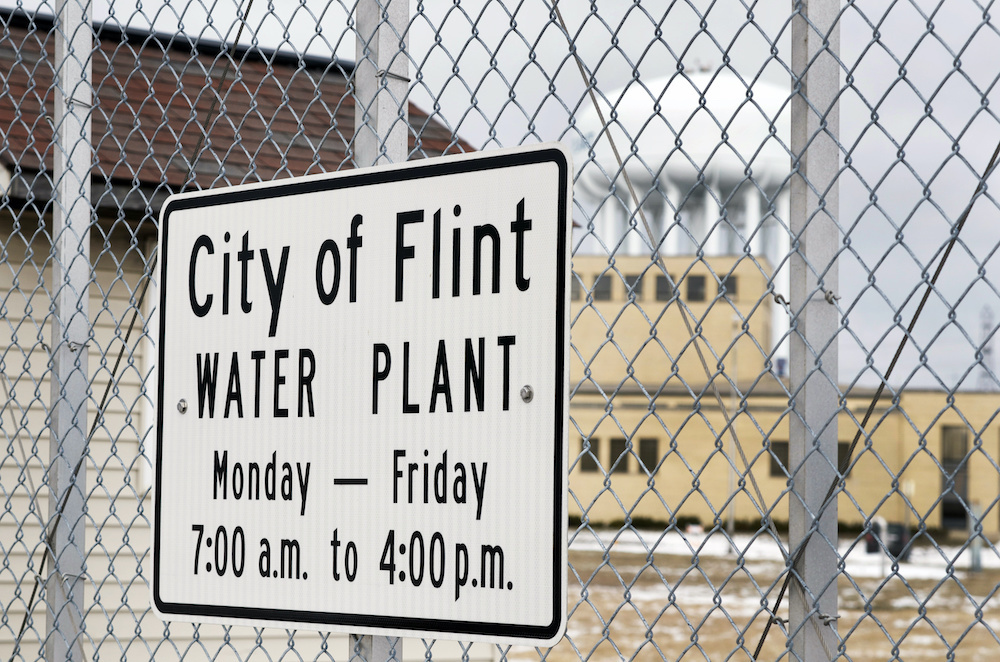GRAND RAPIDS, Mich. (Legal Newsline) - Plaintiff lawyers could reap more than $100 million in fees from Michigan’s settlement of lawsuits over the Flint water crisis and the state has agreed not to contest their take unless a court orders it to.
Details of the settlement announced in August were released on Wednesday, including a 74-page settlement agreement that spells out how Michigan, the city of Flint and various agencies will pay about $641 million over time to children and adults who were exposed to excessive levels of lead in the city’s drinking water between 2014 and 2016.
State and local legislators must approve the payments. If completed, the settlement would end a number of lawsuits in state and federal court including a class action on behalf of all Flint residents and individual suits. Under the terms of the agreement, individual plaintiffs will pay their lawyers according to the contingency-fee contracts they signed.
Plaintiff lawyers fought a bare-knuckled campaign to sign up clients for what was destined to be a lucrative settlement. In a 2018 filing, Cohen Milstein, which represents the class action claimants, accused the New York law firm Napoli Shkolnik of signing clients to contracts providing a 40% contingency fee in excess of Michigan’s 33% cap. Cohen Milstein asked U.S. Judge Deborah Greenspan to remove Napoli Shkolnik as co-lead counsel in charge of the individual plaintiff litigation, while Napoli Shkolnik asked the judge to remove Cohen Milstein from control of the class action.
The two firms ultimately patched things up, but another fight broke out this year after a local lawyer tried to remove Napoli Shkolnik and its co-counsel Levy Konigsberg from the case because they negotiated a “bone lead scan” as one of the criteria for paying claims. Flint attorney Valdemar Washington dropped his complaint after Judge Greenspan called it “just ridiculous.” The matrix for paying claims offers double the base amount for children who have proof of a high blood lead level during the 2014-2016 time period and 1.5 times for children who provide a bone lead scan.
Under that matrix, almost 80% of the money will go to minor children, with the bulk of it going to preadolescents and $35 million set aside to pay future claims. The money will only be paid after the claimants settle liens including Medicaid and Medicare payments. Michigan agreed to waive its portion of Medicare and Medicaid expenses already paid, although the money might affect a claimant’s eligibility for Medicaid.
The agreement also prohibits lenders from cashing in on settlement proceeds, by nullifying any assignments by claimants or liens pre-settlement lenders might try to place on the money. The clause reflects concerns raised most prominently in the NFL concussion settlement, where a federal judge voided contracts under which players were charged rates exceeding state usury limits. A recent study of litigation loans shows that lenders typically earn 55%n a year on mass-tort loans.
Flint claimants may be protected against lenders, but the state won’t intervene to drive down their legal fees. A paragraph in the settlement says the state “will take no position with respect to any application” for fees in the class action and related lawsuits.
“Defendants will rely on the discretion of the Federal Court, Court of Claims, and Genesee County Circuit Court to make the determinations on such applications in a fair and appropriate manner,” the settlement states.
Judges must approve the fees in class actions. In settlements over $100 million, those fees tend to be lower than the typical 33% contingency fee, but a take of 20% is not unusual. Combined with the third of settlement proceeds lawyers for the individual plaintiffs are expected to take, more than $120 million of the state funds being paid out to settle this litigation will likely wind up in the pockets of plaintiff lawyers.
